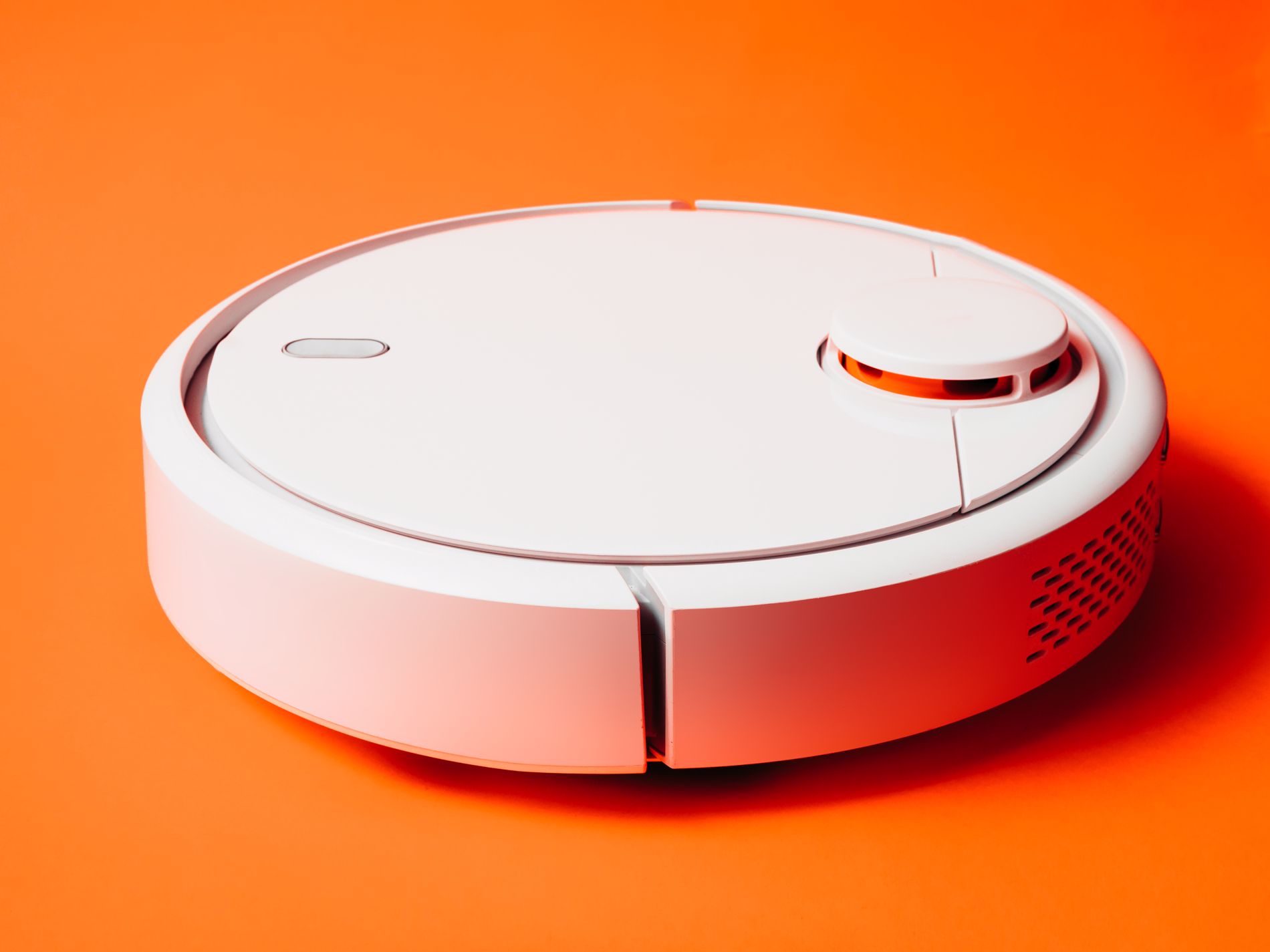If somebody had asked you 15 years ago, what apps would you like to have in your smartphone, what would you answer? You’d probably stare at them with a confused look on your face and wouldn’t have been able to come up with a platform you’re already bored of today.
Kevin Westcott, US telecommunications, media, and entertainment vice-chairman, Deloitte LLP, believes that we’re living in that exact
moment today, “the next Renaissance” period:
„When we actually get [5G internet and edge computing] in the hands of these very creative and innovative people, they’re gonna invent things that we haven’t even considered today.”- He says in User Friendly's Podcast’s series.
Before we wait for the mass adoption of these systems, “these innovative and creative people” are already getting ready for the next technological revolution.
Augmented and virtual realities, Internet of Things, artificial intelligence, cybersecurity and business ecosystems are the 5 trending directions we’re going to discuss in this and upcoming articles; We will introduce the main goals of these industries, their statistical data, and interesting startups in the field.
1. Augmented and Virtual realities (AR/VR)
Our everyday life is going to change drastically in the upcoming years and that change is going to be most visible probably due to the advancements in Augmented and Virtual realities.
Entertainment, real estate, healthcare, education, production… Coming back to the words of Westcott, it’s hard to even imagine how our work and learning environments are going to advance
thanks to the AR/VR industry.
The total value of startups in this space was 45 Billion dollars on paper in 2019. The investors already got 8 Billion dollars back from the M&A phase.
According to the article by Venturebeat, one of the 7 habits of successful AR/VR startups is to solve critical problems. In general, a successful business idea serves one of the two main goals: to solve a problem or to create additional comfort. And, the leader startups of this industry fall into the first category.
Interesting startups
● Streem is an AR company that uses computer vision and machine learning to enable tech support via a video call. The system helps tech support service providers easily detect a problem by having the client point the video camera at the broken device. Most of the time, this eliminates the need for the support team to show up on spot. So much so that the application has decreased the need for on-spot support by 42%. Imagine how much these companies have saved!
● Just as exciting is another AR/VR company called Zspace. They provide schools with special laptops and VR headsets that make you feel like you’re holding hearts and lungs with bare hands in anatomy classes and Mars and Jupiter in astronomy.
Special laptops and VR headsets that make you feel like you’re holding hearts and lungs with bare hands in anatomy classes and Mars and Jupiter in astronomy.
● Earlier we only encountered the practice of mind-reading in science fiction works. Today this has become a reality: The startup Neurable produces headsets that consist of a virtual reality device and a cap with electroencephalography sensors. This enables the hardware to
detect brain signals and fulfill commands that haven’t been spoken but simple thought of.
If you’re thinking of building a startup in the field of AR/VR then this article will help you understand your idea better and find a well-fitted industry for it too.
2. Internet of Things (IoT)
A smart toaster that prints an image of your choice on a loaf of bread; a bottle that buzzes and lights up to remind you to drink water; a belt that monitors your health – the list of funny and a little weird
smart gadgets is endless and they are very much appreciated by their users too. But the potential of the IoT industry certainly doesn’t end here.

Just like AR/VR, IoT is quite appealing both for end-users and for companies. Monitoring different objects and controlling them remotely drastically decreases the time wasted on such processes and
the number of errors during it. It also enables us to collect information on various risk-factors with higher precision than ever.
According to Statista, Back in 2017, the IoT industry revenue reached 100 Billion dollars. By
2025 it is expected that the amount will reach 1.6 Trillion dollars.
Broadly speaking, the end-goal of this industry is to create smart cities, which means that on every
step on our way smart devices will be at our service, simplifying our everyday activities all-the-
more.
Obviously, the more the IoT industry grows, the more concerns are raised around it. The problem
needs yet to be solved, but many specialists are already working hard on the matter.
Interesting startups
● Iguazio “automates the machine learning pipeline” by allowing data scientists to take the data collected from different sources and use it directly for the testing and production of machine learning models in one system. Iguazio is used for industrial IoT, smart mobility, and telecommunications. The company is already working with such tech-giants as NVIDIA, Microsoft, and Google.
● Oriented on micro-factories, Bright Machines works on the automation of production. It’s one of the fastest-growing companies in the industry: in just a year from 2018, it brought in 400 new employees. The startup is run by former representatives of such companies as
Autodesk, Amazon, and Flextronics.
In the upcoming article we will talk about Artificial Intelligence, Cybersecurity, and astonishing benefits of Business ecosystems. Subscribe to our Newsletter and stay updated.




The future world: 2020 tech trends [part I]
12 August 2020If somebody had asked you 15 years ago, what apps would you like to have in your smartphone, what would you answer? You’d probably stare at them with a confused look on your face and wouldn’t have been able to come up with a platform you’re already bored of today.
Kevin Westcott, US telecommunications, media, and entertainment vice-chairman, Deloitte LLP, believes that we’re living in that exact
moment today, “the next Renaissance” period:
„When we actually get [5G internet and edge computing] in the hands of these very creative and innovative people, they’re gonna invent things that we haven’t even considered today.”- He says in User Friendly's Podcast’s series.
Before we wait for the mass adoption of these systems, “these innovative and creative people” are already getting ready for the next technological revolution.
Augmented and virtual realities, Internet of Things, artificial intelligence, cybersecurity and business ecosystems are the 5 trending directions we’re going to discuss in this and upcoming articles; We will introduce the main goals of these industries, their statistical data, and interesting startups in the field.
1. Augmented and Virtual realities (AR/VR)
Our everyday life is going to change drastically in the upcoming years and that change is going to be most visible probably due to the advancements in Augmented and Virtual realities.
Entertainment, real estate, healthcare, education, production… Coming back to the words of Westcott, it’s hard to even imagine how our work and learning environments are going to advance
thanks to the AR/VR industry.
The total value of startups in this space was 45 Billion dollars on paper in 2019. The investors already got 8 Billion dollars back from the M&A phase.
According to the article by Venturebeat, one of the 7 habits of successful AR/VR startups is to solve critical problems. In general, a successful business idea serves one of the two main goals: to solve a problem or to create additional comfort. And, the leader startups of this industry fall into the first category.
Interesting startups
● Streem is an AR company that uses computer vision and machine learning to enable tech support via a video call. The system helps tech support service providers easily detect a problem by having the client point the video camera at the broken device. Most of the time, this eliminates the need for the support team to show up on spot. So much so that the application has decreased the need for on-spot support by 42%. Imagine how much these companies have saved!
● Just as exciting is another AR/VR company called Zspace. They provide schools with special laptops and VR headsets that make you feel like you’re holding hearts and lungs with bare hands in anatomy classes and Mars and Jupiter in astronomy.
● Earlier we only encountered the practice of mind-reading in science fiction works. Today this has become a reality: The startup Neurable produces headsets that consist of a virtual reality device and a cap with electroencephalography sensors. This enables the hardware to
detect brain signals and fulfill commands that haven’t been spoken but simple thought of.
If you’re thinking of building a startup in the field of AR/VR then this article will help you understand your idea better and find a well-fitted industry for it too.
2. Internet of Things (IoT)
A smart toaster that prints an image of your choice on a loaf of bread; a bottle that buzzes and lights up to remind you to drink water; a belt that monitors your health – the list of funny and a little weird
smart gadgets is endless and they are very much appreciated by their users too. But the potential of the IoT industry certainly doesn’t end here.
Just like AR/VR, IoT is quite appealing both for end-users and for companies. Monitoring different objects and controlling them remotely drastically decreases the time wasted on such processes and
the number of errors during it. It also enables us to collect information on various risk-factors with higher precision than ever.
According to Statista, Back in 2017, the IoT industry revenue reached 100 Billion dollars. By
2025 it is expected that the amount will reach 1.6 Trillion dollars.
Broadly speaking, the end-goal of this industry is to create smart cities, which means that on every
step on our way smart devices will be at our service, simplifying our everyday activities all-the-
more.
Obviously, the more the IoT industry grows, the more concerns are raised around it. The problem
needs yet to be solved, but many specialists are already working hard on the matter.
Interesting startups
● Iguazio “automates the machine learning pipeline” by allowing data scientists to take the data collected from different sources and use it directly for the testing and production of machine learning models in one system. Iguazio is used for industrial IoT, smart mobility, and telecommunications. The company is already working with such tech-giants as NVIDIA, Microsoft, and Google.
● Oriented on micro-factories, Bright Machines works on the automation of production. It’s one of the fastest-growing companies in the industry: in just a year from 2018, it brought in 400 new employees. The startup is run by former representatives of such companies as
Autodesk, Amazon, and Flextronics.
In the upcoming article we will talk about Artificial Intelligence, Cybersecurity, and astonishing benefits of Business ecosystems. Subscribe to our Newsletter and stay updated.